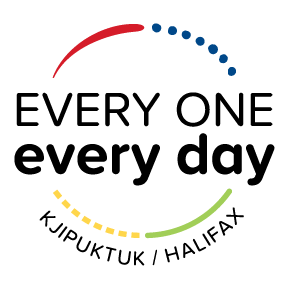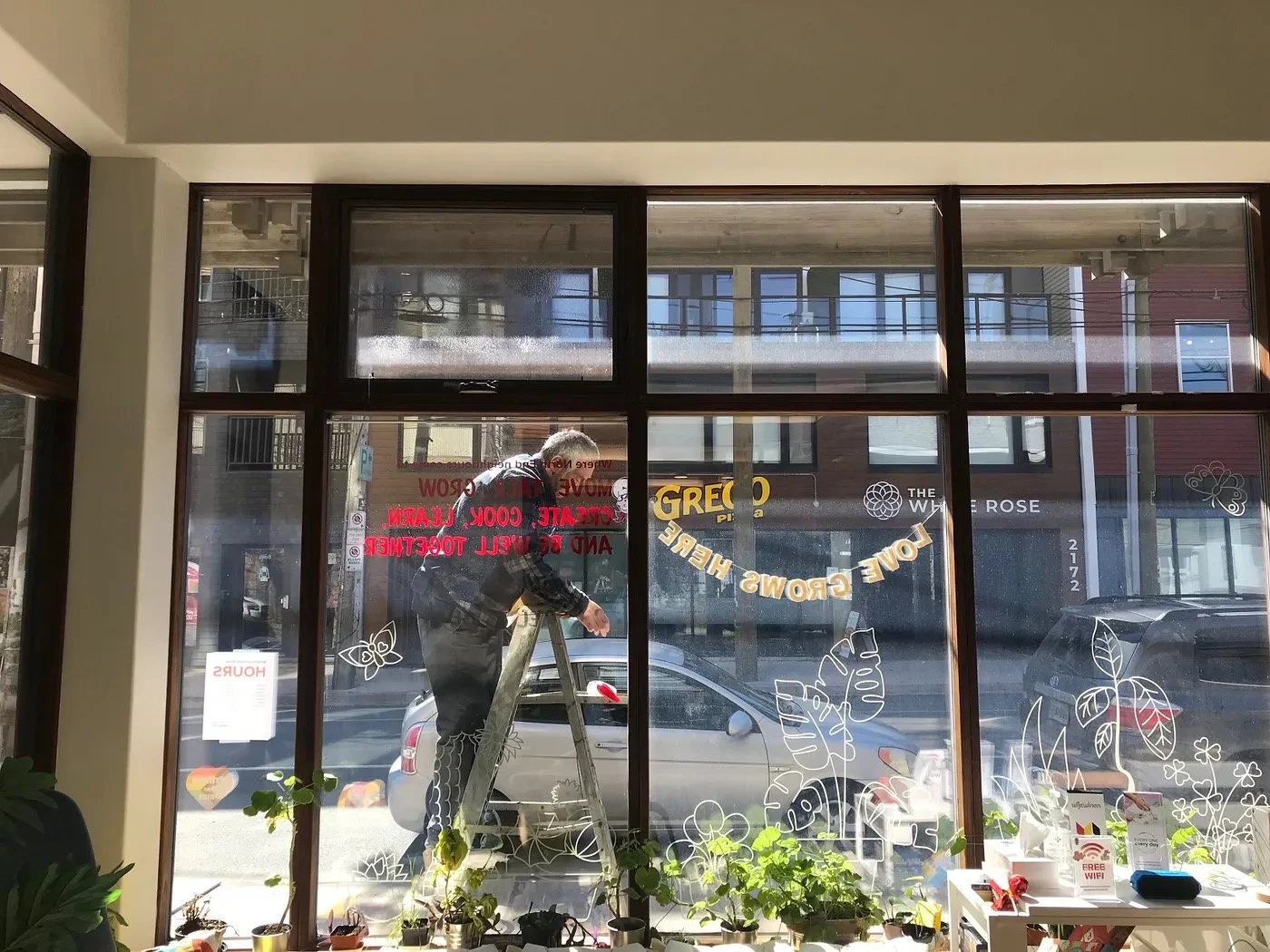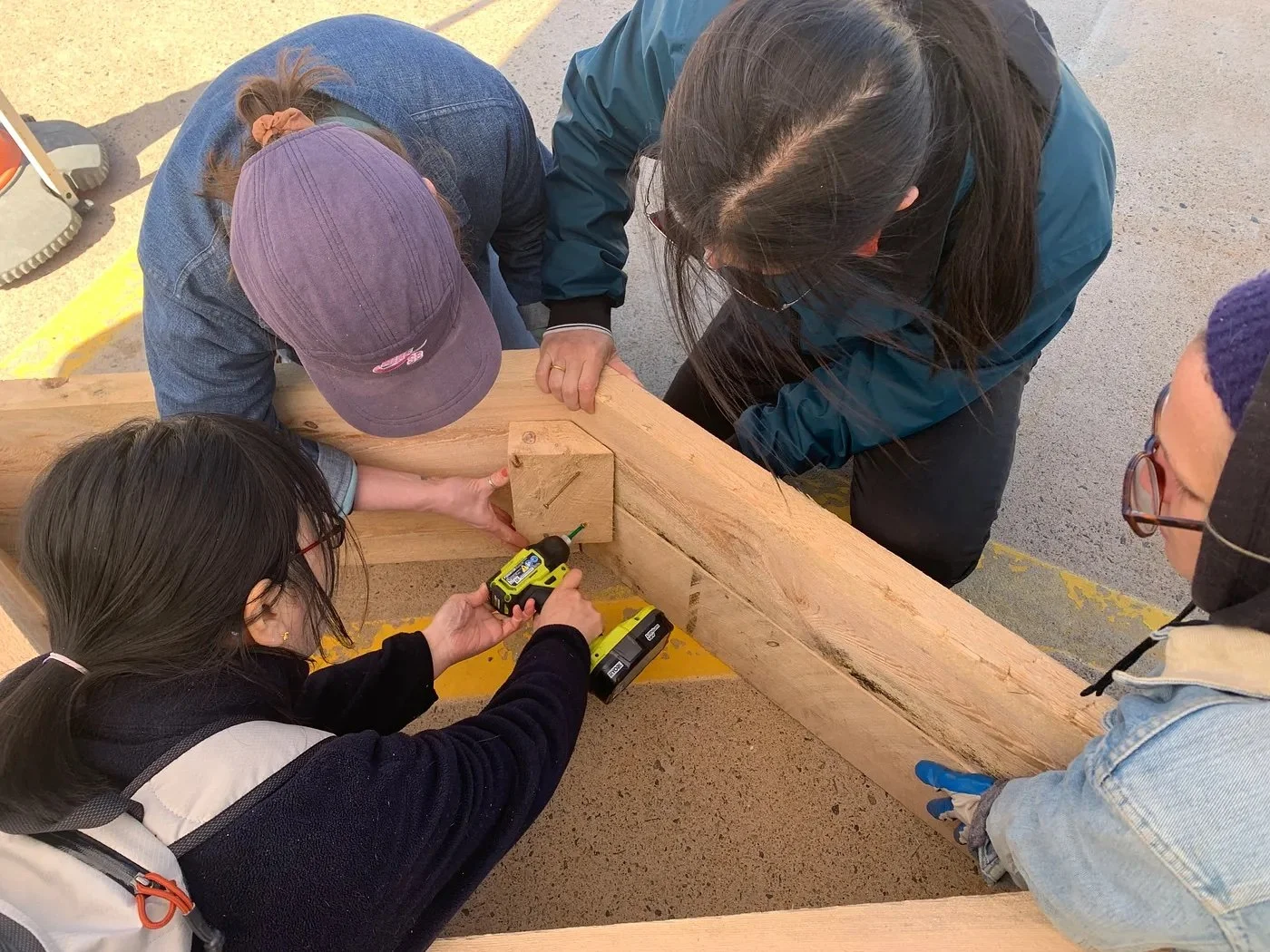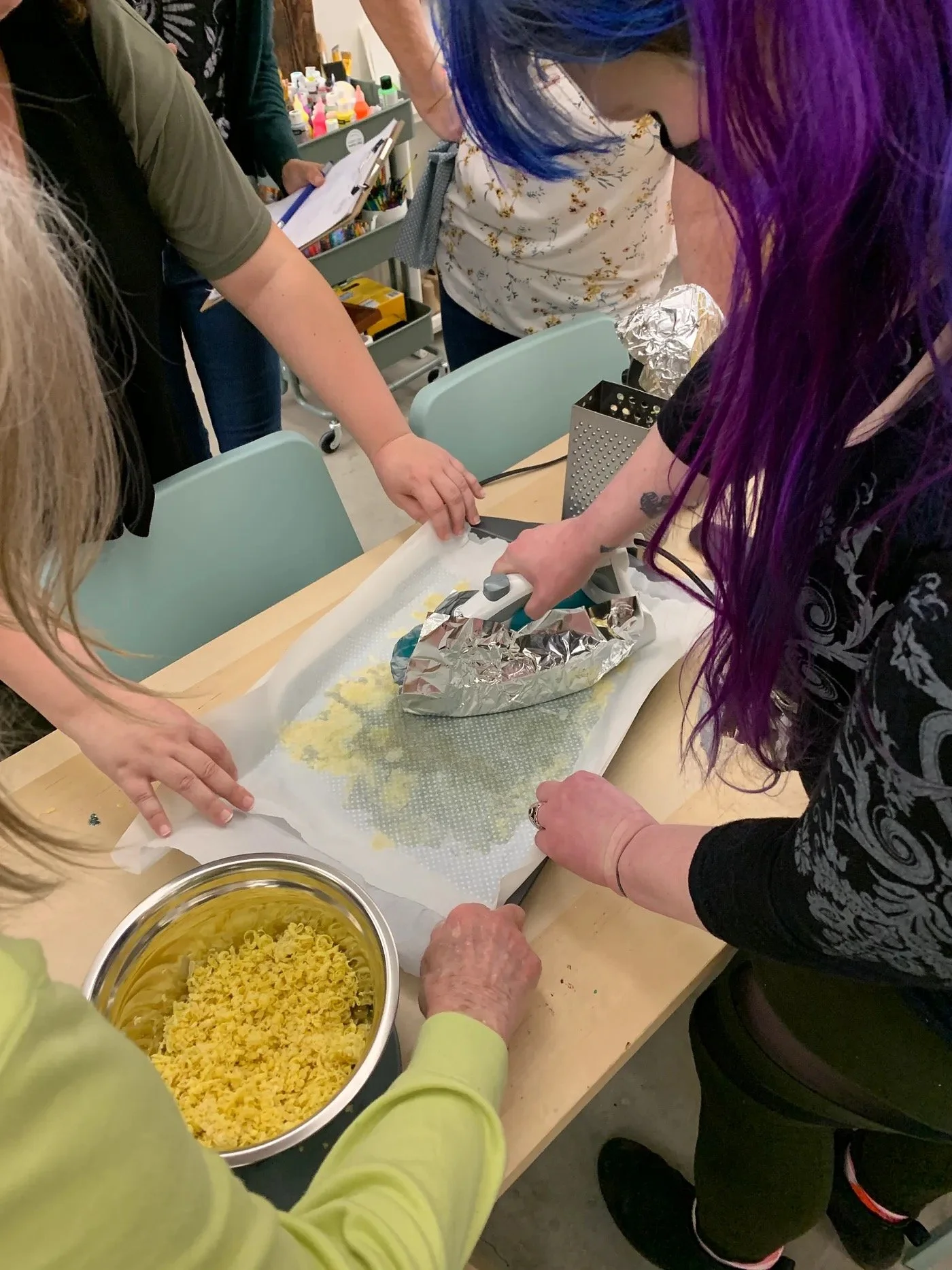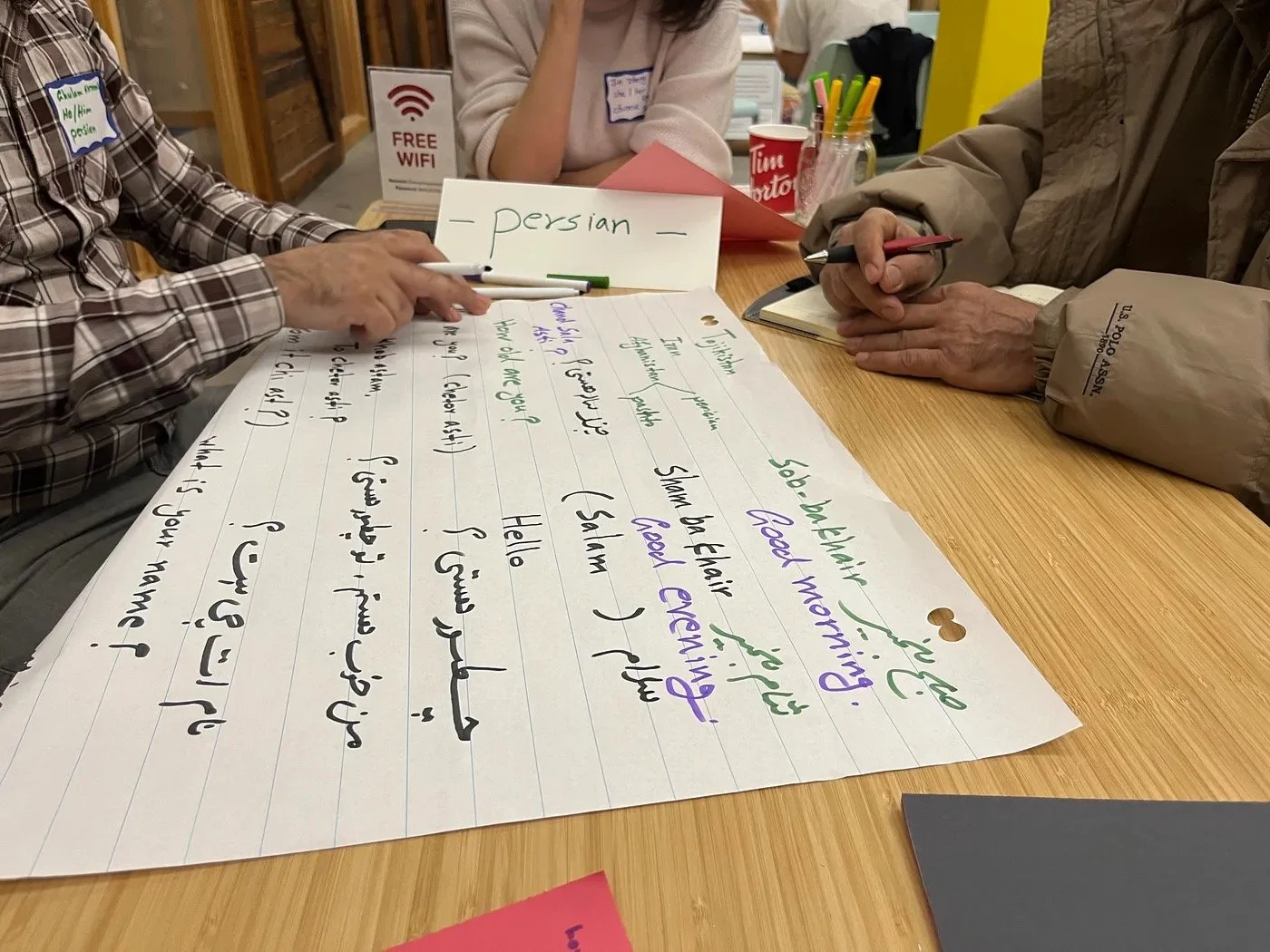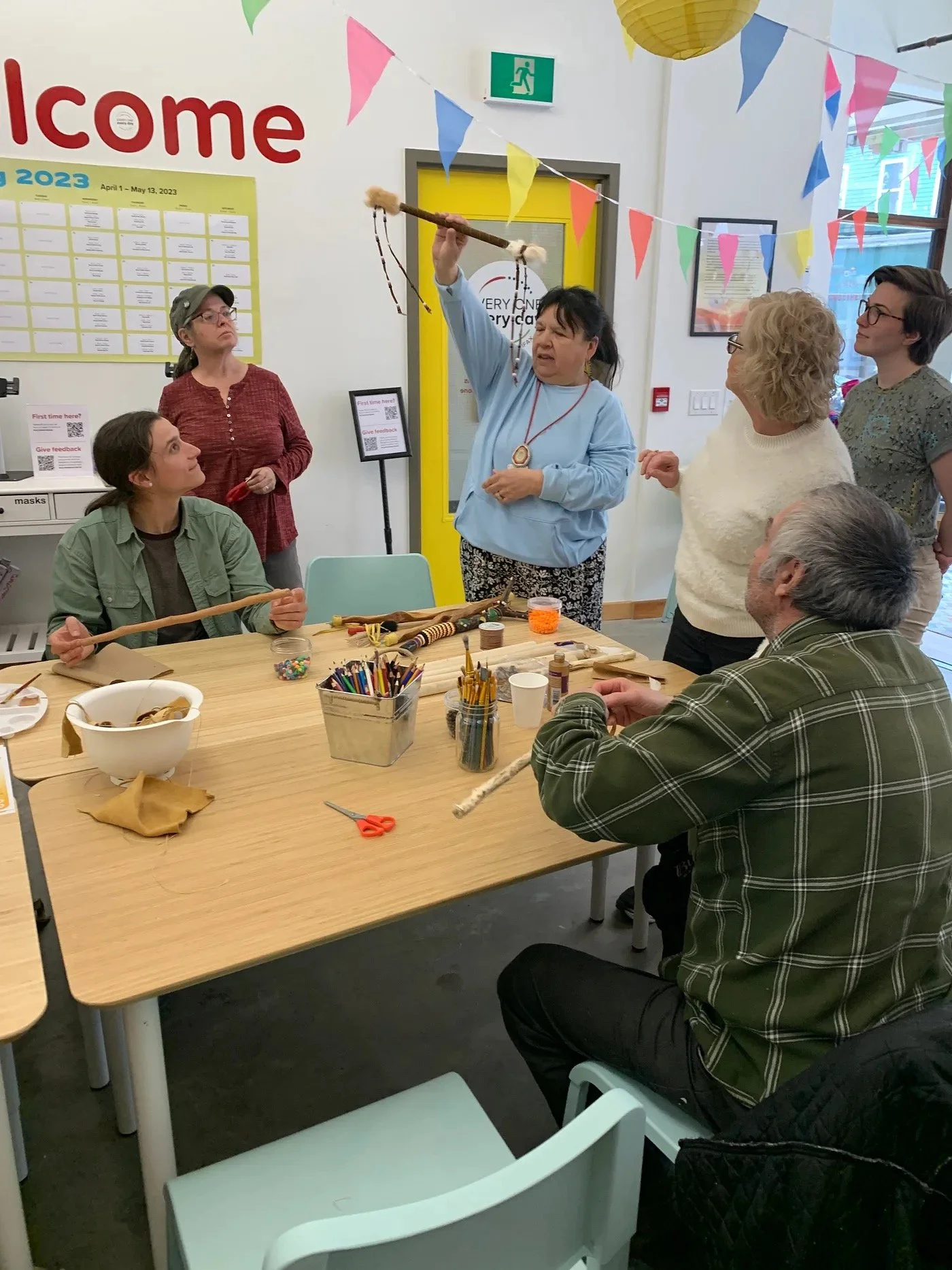Across diversity and difference, what will it take to build meaningfully shared lives?
Aimee Gasparetto
On a sunny day in the Every One Every Day Neighbourhood Shop in Kjipuktuk (Halifax), a local resident offered to clean our very large street-facing windows. It’s a place where everyone’s contributions are valued, no matter how big or how small — together, adding up to everyday, meaningful participation.
Over the past year, I’ve seen and heard countless instances of otherwise strangers coming together to share and learn new skills, care for one another’s children, mend a neighbours’ clothing, share home-cooked meals, create pieces of collaborative art, repair and make things together, plant gardens, and design useful things for the neighbourhood. It’s quite astonishing actually, how simple yet extraordinary it can be when just the right conditions are created for many different people to meet and be encouraged to cooperate in meaningful ways.
Such observations and experiences have led me to a central question about the role of inclusive social infrastructure across communities and neighbourhoods:
In a world where diversity and difference prevail, what will it take to build meaningfully shared lives?
A local resident teaching others to use hand tools while building a series of wooden garden boxes. These garden boxes are part of a design will make up a new entrance way for the Mi’kmaw Native Friendship Centre, located down the road from the Every One Every Day Neighbourhood Shop.
These stories of connection and cooperation are emerging daily through the early-stage development of a support platform for neighbourhood participation in the North end of Kjipuktuk (Halifax); One which offers insight into the role of inclusive social infrastructure in inviting meaningful participation across diverse cultures and backgrounds, and as an essential ingredient for building shared lives.
Residents learning from one another about how to make wax wraps from beeswax.
I read about the concept of “shared lives” in a book by Yascha Mounk, called The Great Experiment: Why Diverse Democracies Fall Apart and How They Can Endure. In his book, Mounk speaks to the continued trends of multi-culturalism in cities across the world, and how different mindsets, structures, and policies will either nurture social cohesion among groups, or work to fuel a sense of division and fragmentation. He speaks to common metaphors often used to explain the ways in which groups may be encouraged to come together in society. But in his own metaphor, described as the “public park”, key features enable diverse people to live in accordance with their unique cultures and identities, but at the same time, “benefit from vibrant common space in which people from different walks of life have meaningful opportunities to interact and cooperate”.
As we deepen our understanding of the Every One Every Day platform, it’s this vision, and the conditions needed to build it, that we begin to understand more. Through features such as inclusive design, open invitations, a range of entry points, varied levels of support, and peer-peer learning, we see that when people are supported to interact regularly around common interests, it can transform how they come to understand one another while nurturing social ties and trust. It illuminates the concept of “bridging social capital”, whereby different groups can be encouraged to form new relationships with people they may not otherwise meet or find opportunities to work alongside.
Residents coming together in the Neighbourhood Shop to share and learn the basics of different languages that are spoken across the community.
In his book titled Palaces for the People: How Social Infrastructure Can Help Fight Inequality, Polarization, and the Decline of Civic Life, Eric Klienberg states that “people forge bonds in places that have healthy social infrastructures — not because they set out to build community, but because when people engage in sustained, recurrent interaction, particularly while doing things they enjoy, relationships inevitably grow.”
Relationships rest at the heart of what we are building.
As Every One Every Day develops, we do so with the intention and commitment of centering Truth and Reconciliation in our work — something that is essential in our efforts towards building meaningfully shared lives. This intention implies a focus on learning and relationships not just as part of how we do our work, but also within the civic and social structures we help to create, and their role in supporting new forms of learning, understanding and action.
Learning about the significance and use of talking sticks with an Indigenous Elder from the Mi’kmaw Native Friendship Centre.
It places emphasis on designing social infrastructure in ways that embed respectful sharing and learning around the truth of our shared history and its’ layered impacts. It embeds opportunities to learn and unlearn alongside one another and contribute our gifts and talents in ways that create value and agency to shape the world around us. Perhaps most profoundly, it leverages the power of socially connected spaces where people can actively participate in a thriving civic and social life; One where everyone not only has a place but can contribute to the very identity and social fabric that comes to define that place, and ultimately who belongs in it.
Over time, it becomes these relationships and daily actions, nurtured through the shared spaces we inhabit, that may fundamentally shift how we come to live and learn in society together and how we may continue to nurture meaningfully shared lives.
